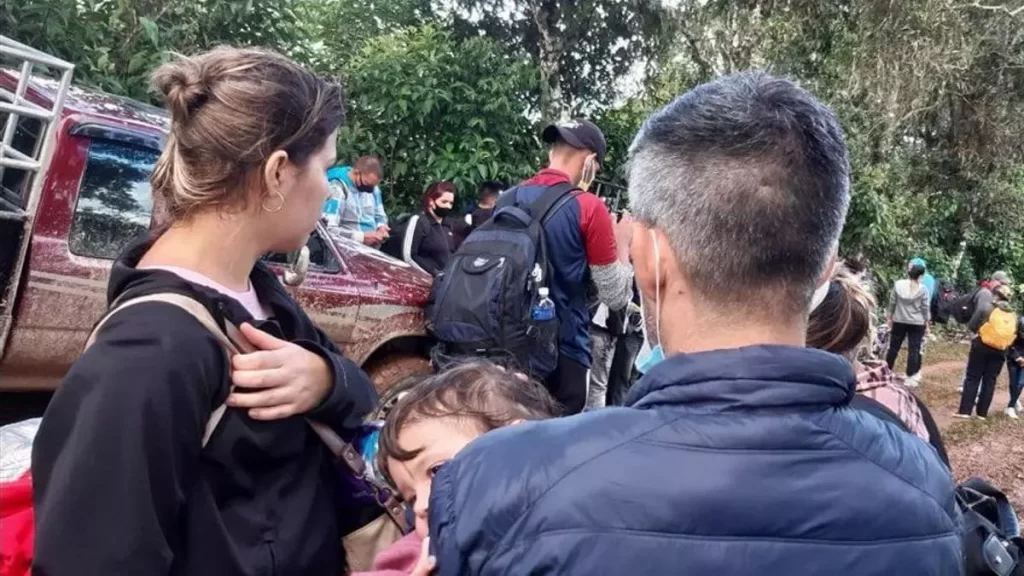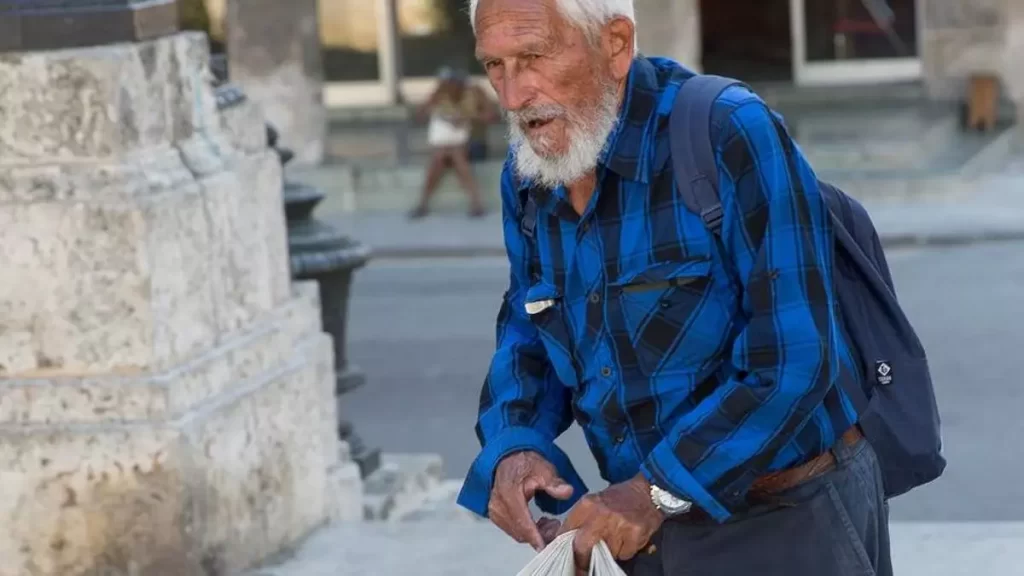The anointing of the sick is the only sacrament that is increasing, another reflection of the demographic situation on the island

![]() 14ymedio, Havana, July 24, 2024 — The Catholic priest Ariel Suárez, secretary of the Cuban Episcopal Conference – and, in practice, its spokesman – said during an interview in Spain that in a parish like his, the sanctuary of the Virgin of Charity in Havana, 300 children can be baptized every month. The figure is not impossible, although optimistic, in a country weighed down by migratory stampede and low birth rate, according to the religious authorities of several Cuban dioceses interviewed by 14ymedio. In the parishes of the most important cities of Matanzas – Varadero, Cárdenas and Matanzas – they are far from that number, according to a source from their bishopric: about 15 children a month in Cárdenas and about 20 per priest, if he has to attend several parishes.
14ymedio, Havana, July 24, 2024 — The Catholic priest Ariel Suárez, secretary of the Cuban Episcopal Conference – and, in practice, its spokesman – said during an interview in Spain that in a parish like his, the sanctuary of the Virgin of Charity in Havana, 300 children can be baptized every month. The figure is not impossible, although optimistic, in a country weighed down by migratory stampede and low birth rate, according to the religious authorities of several Cuban dioceses interviewed by 14ymedio. In the parishes of the most important cities of Matanzas – Varadero, Cárdenas and Matanzas – they are far from that number, according to a source from their bishopric: about 15 children a month in Cárdenas and about 20 per priest, if he has to attend several parishes.
In Camajuaní, where several years ago dozens of children were baptized every Saturday, the current number is between 4 or 6 children each month. A member of the diocesan administration of Santa Clara explains to this newspaper that it is normal for families “to baptize the children and then leave the country one week later.”
In Camajuaní, where several years ago dozens of children were baptized every Saturday, the current number is between 4 or 6 children every month
Apparently, he says, they believe that the ritual provides some kind of protection or luck during the trip, or they have the superstition that it will facilitate the exit procedures. As for the data offered by Suárez, he says, “it could be real for that parish, because it is a sanctuary in the middle of Central Havana, although it seems too high.” continue reading
“In each diocese there are sacramental statistics. They are done every year. It must be borne in mind that each parish in Cuba is very different. In the city of Santa Clara, for example, the number of baptisms in a sanctuary like Buenviaje or in the cathedral is not the same as in the churches of La Pastora and Carmen,” he explains.
The decline in rituals is not only for baptisms: “There are few births, fewer baptisms, a lot of emigration, fewer confirmations – another sacrament -and there are also fewer religious marriages,” he summarizes. There is only an abundance of what is known as the “anointing of the sick” – formerly called extreme unction – because the “old people are left behind.”
In the archdiocese of Santiago de Cuba – where mountain communities abound – a source in the archdiocese tells 14ymedio that priests do not usually compile monthly statistics, only an annual figure that he did not reveal. He admitted, of course, that it tends to decrease. “People are attending Church because they are desperate,” he explains. “Many of the baptisms are just a number.”
During his interview, Suárez sounded amazed that “after so many years, of a social system that promulgated atheism with such force” and given the current circumstances, baptisms continue to be held in Cuba. “The parents of those children are young,” he added, and “they do not have a Christian foundation,” but – despite the indoctrination of the regime – they do not look at the Catholic Church with “hostility or indifference.”
The priest said he was aware of the migratory crisis, in which “Cubans of all ages leave, not only young people. Of course, the departure of young people is felt more in a nation, because they are supposed to be the ones who have projects and dreams for the future of a country and of the Church itself,” he said.
“People are attending Church because they are desperate,” he explains. “Many of the baptisms are just a number”
In addition, he made it clear that the Church in Cuba considers itself “vulnerable,” and he listed what, in his opinion, it has to lose: the “small but significant” education centers, nursing homes and care spaces for the sick, the elderly and the alcoholics.
In a context of extreme coldness in Church-State relations, Suárez has become a spokesman for an increasingly lethargic Episcopal Conference. Cuban bishops have not published a joint document that contains criticism of the Government or descriptions of the country’s situation for months. Last April, Suárez – interviewed by the American network NBC – again reminded the authorities that the Church was ready to have a conversation about the freedom of political prisoners.
In the protests of last March 17 – and in the previous ones – Suárez said that the pain “turned into a scream,” which was “listened to” and “accepted” by “all the authorities of the country.” At least everyone has agreed to consider that the cry reflected anguish, reflected despair, and that it was obviously asking for a different situation from what was being experienced,” he said, referring to the demonstrations in the city of Santiago de Cuba.
A source from the archdiocese of Havana told this newspaper that what Suárez expressed “is a subtle message” that the bishops send to the regime to say that the Church can mediate “despite the sorrows.” However, he acknowledged that “at the diocesan level, the tension with the Party’s Religious Affairs Offices is worse than ever.”
Translated by Regina Anavy
____________
COLLABORATE WITH OUR WORK: The 14ymedio team is committed to practicing serious journalism that reflects Cuba’s reality in all its depth. Thank you for joining us on this long journey. We invite you to continue supporting us by becoming a member of 14ymedio now. Together we can continue transforming journalism in Cuba.
















